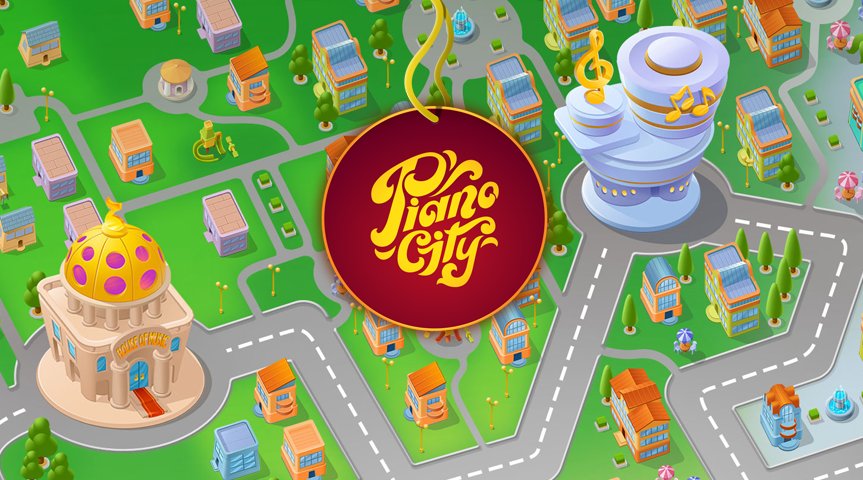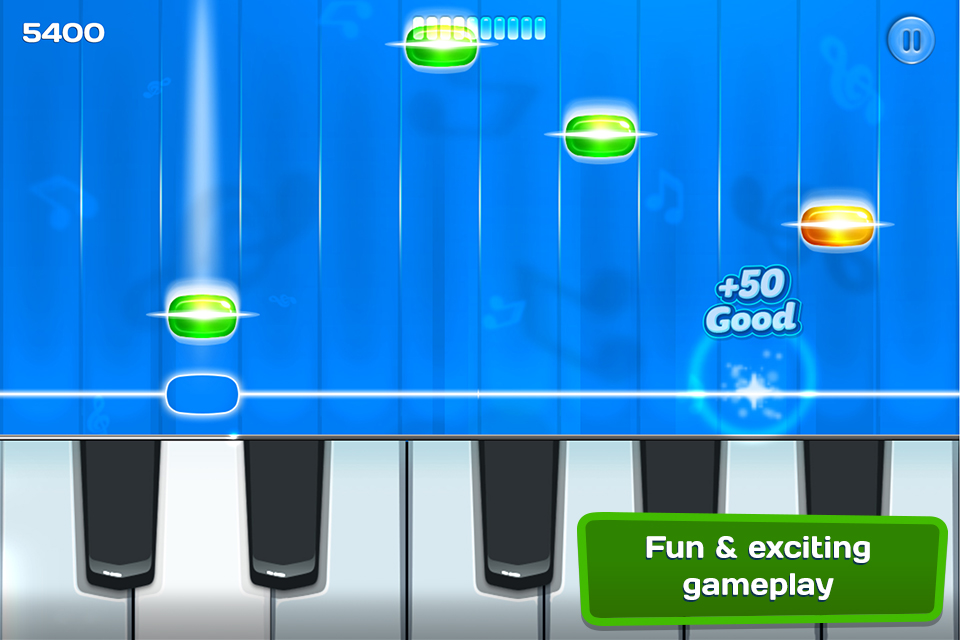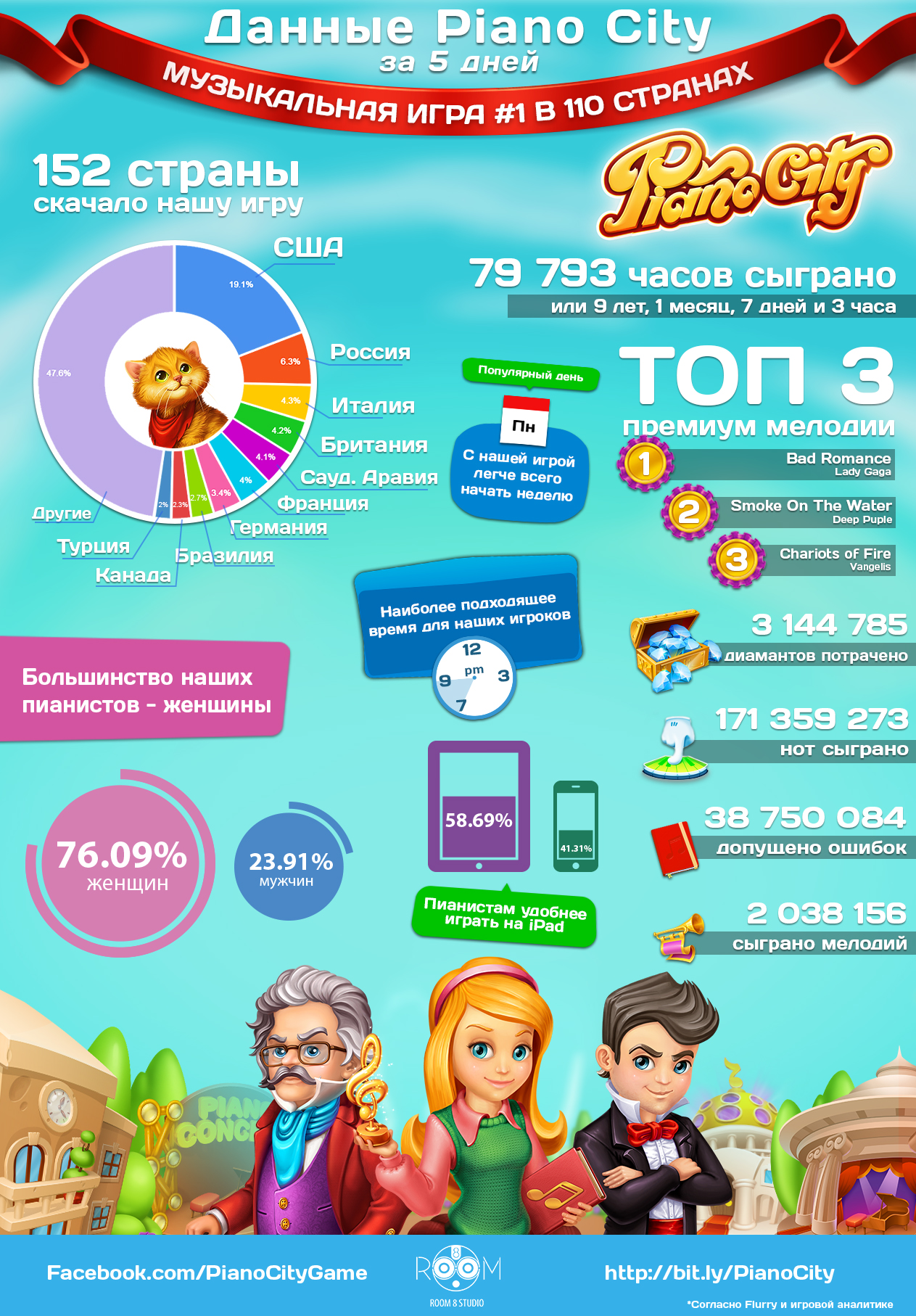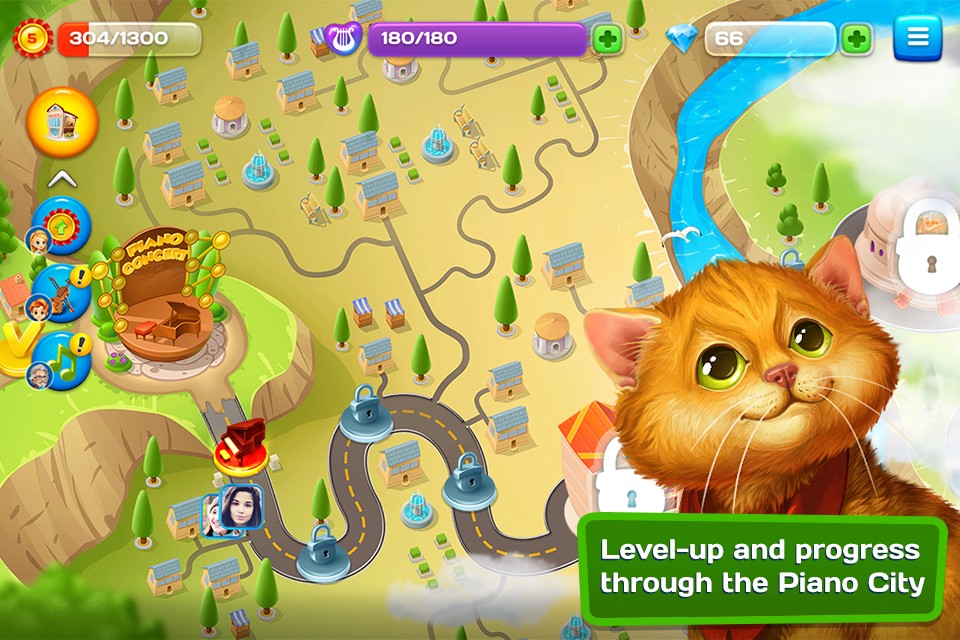At the end of September, the Piano City music game from the Kiev Room 8 team was released on the App Store. The project not only received a feature on the iTunes Home Page in 127 countries, but was also recognized by Apple as one of the best games of September. So we couldn’t get past the release of Piano City, and talked about the fate of the project with Ninel Gruner, marketing director of Room 8.

Hi! In fact, I’m afraid that now for many the most pressing issue will be: how did you get into feathering in 127 countries? But I still suggest starting with a story about the project. Tell me, how did you come up with the idea to plant a “piano” on f2p, you used to be engaged in more conservative projects in terms of monetization (Cyto, Riot Runners)?Ninel Gruner

Hi!
Don’t tell me. Our last project, Riot Runners, also had a free version released with the Tango messenger – Robot Rush for Tango. The game that we released on the same day with Piano City together with DeNA, the innovative puzzle Popcorn Party, is also f2p. And we have three more fritupley projects in development. Experimenting with paid products is no longer for us. You can talk as much as you like about all kinds of marketing strategies and ways to attract traffic, but the most working one is UA. It costs much more to attract a user to a paid game than he will bring you.
There are a huge number of offers with “piano” on the mobile market. It is enough to type piano in the search – and you immediately drown in projects, the advantage of representing a simple simulator of this instrument (however, there are also chic Japanese story-driven projects). The question is: was there an application that you were targeting?If you look at the box office Top 100 (USA, iOS), you can pay attention that at least a dozen projects there are musical.
The main competitors we focused on were Magic Piano from SMULE and Tiny Piano. But we wanted to bring more sociality, plot to the musical game … and, in general, games in a more modern sense of the word.
Of course, we also looked at Japanese projects. Having visited Tokyo Game Show 2014, I can say that we have a lot to learn from them! Those projects that are created by local developers are able not only to cause a storm of emotions, but also to make decent money on them.

Did you develop the project for a long time before the soft launch in Russia?About a year.
By what forces?At different stages, a different number of people worked on the game, but the main backbone was a team of eight people.
The project was gently launched in July and polished until September. What has been changed in the project?We worked a lot on the art – we redrawn all the characters, making them more adult, so that the project does not seem like a child’s game.
We were very happy with the retention, getting about 50% on the second day. We also fixed bugs, added challenges, PvP and new content.
I promised to return to one question at the very beginning of the interview, so I’m coming back: how did you get into features in 127 countries on the App Store? How closely did you work with the company’s representatives, what did you “press” on?No one was pressured.
We came out in the wake of the launch of iOS 8, adding support for the new OS, widgets to the game, adapted the UI for new Apple devices, made an App Preview – a game video in the App Store – because of which, by the way, we also had features in 20 countries in this category. Well, Apple probably liked the game.
A little more than two weeks have passed since the release of the game, are you ready to share the first results?We have prepared an infographic illustrating the statistics on the game for the first 5 game days.

What conclusions did the team make for themselves after the release?Firstly, we were not ready for such a load on the servers.
We expected 50-100 thousand downloads per week. And we received hundreds of thousands in the first few days. Because of this, some users could not play, synchronization with the server worked poorly. We solved this problem quickly enough, but some of the players still fell off..
Secondly, there is no hurry. It is better to finish the product – then the chances of recognition of users and features from Apple are much higher. We were not in a hurry, and thanks to this, we received a small banner in about 90 countries.
After the worldwide release, the project showed itself well, judging by App Annie. But after the end of the feature, I began to rapidly lose performance in downloads, this is understandable, but what is the financial situation?There is a lot to strive for, but so far everything is fine.
We are working hard on a big update aimed at virality and improving monetization.

I had a feeling, looking again at previous projects, among which you can even find a few hiddens, that Room 8 has been in constant search of a “gold mine” since its formation. Is it so? And can we say that Piano City has become this residential area and in the future we should expect more music projects from the studio?
Perhaps. We continue to experiment, and we still have something to surprise.
But we liked that the audience received Piano City very well, and we are already planning to develop other music games, along with improving and developing the current game.
Thanks for the interview!
